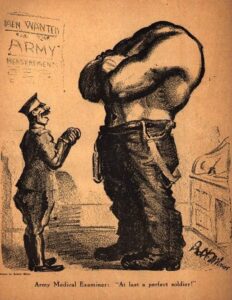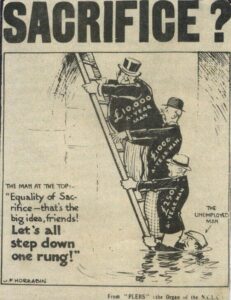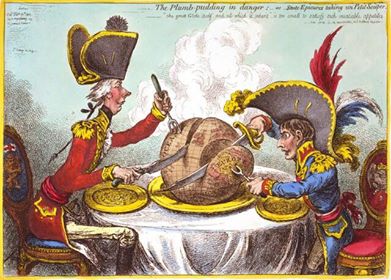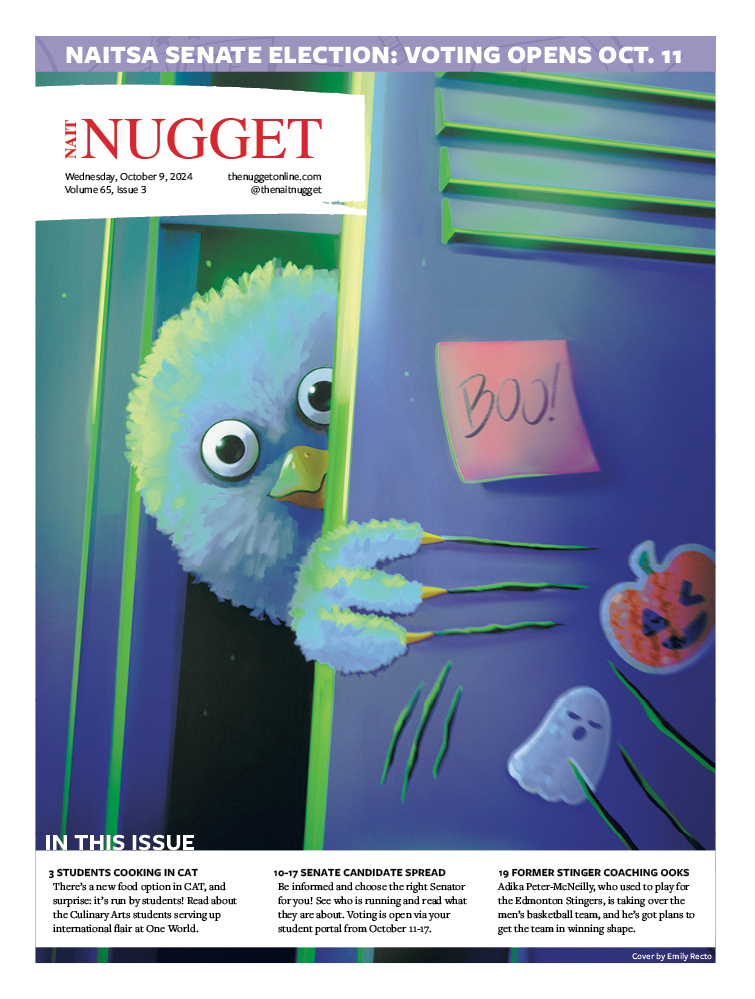In 2018, it feels like we are living in a world divided
over so many issues. One of them being what can and
can’t be joked about and another being what is “right” and
“wrong.” This is why we wrote The Fugget. With people
so polarized on what’s going on in society, we thought satire
would do these issues more justice than “straight” news
coverage of issues ranging from censorship, to race and
gender relations, to society’s power balance.
Fortunately, the history of satire has shown that this
form of comedy thrives best in these unstable conditions.
From Nixon’s presidency fuelling National Lampoon’s
writing, to post-9/11 America giving The Colbert Report
endless material, to nearly every satire and comedy outlet
getting ideas spoon-fed to them through the actions of
President Donald Trump. Satire works best and is at its
highest importance when the world appears to be more of a
sitcom than it does real life.
Solutions wanted
Satire not only flourishes in these times because of how
easy the jokes can be to write, but also because people are
looking for an explanation to this madness; people want a
solution to these issues.
“Comfort the afflicted and afflict the comfortable,” said
Finley Peter Dunne.
Dunne’s quote is vital to satire as it shows its importance
in educating and empowering “the people” to make
change and start conversations on issues within a society.
The quote also states the golden rule of satire – always
punch up. Punching up means to make fun of things people
can choose, not things they were born into or have (examples
include: race, disability, sexual orientation and disease).
This term also means to target people in power or
those making decisions on behalf of others.
Gift of satire
We’re extremely lucky to live in a country where questioning
and lampooning the actions of our superiors is a
protected right. Throughout history and even today, much
of the world would not even consider commenting on
taboo subjects such as inequality, religion or the actions of
their leaders. Citizens of countries like North Korea, Turkmenistan
and Russia don’t have the right to satirize nearly
anything. But that’s the beauty of satire. In a free nation,
the average person can poke fun at issues within their
world with nearly infinite possibilities.

Satire is not new and has been an important part of forwarding
discussion on political and social
issues since before Christ. Aristophanes,
considered the “King of Comedy” is often
regarded as one of the first satirists. The
writer believed gods, politicians and even
ordinary people could be made fun of – a
controversial viewpoint in ancient Athens.
His work can still be seen as it established a
trend in modern Greek theatre where writers
use updated versions of his plays to break
taboos. Aristophanes’ writing has also given
insight into the life and politics of ancient
Athens.
While Aristophanes’ work may be a
product of its time, most satire is. And like
his writing, satire can be as valuable as a
newspaper or a work of art in giving us a
look into what was going on in a society.
Satire can cover the political and social climate
and is a valuable piece of history. By
looking at the writing and seeing what came
after, you can often see a change of conversation
that the piece sparked.
When looking at the history of France’s
satire newspaper, Charlie Hebdo, one can
see a direct cause-and-effect of their work.
Most famously known for the 2015 shooting
that killed 12 and injured 11 of their staff,
historians will be able to look at this attack
and see the state of France at the time.
The attack was carried out in response to the paper’s
cover depicting The Prophet Muhammad – an extreme
taboo in some interpretations of Islam. The outlet had
pushed the limits of this topic three times before the shooting;
inciting responses ranging from attempted lawsuits, to
fire bombings on their office, to riot police having to guard
the paper’s offices.

France also has strict “Separation of the
Church and the State” laws which allow freedom
of speech for and against all religions, until
it falls under hate crime territory. Charlie Hebdo
states that these works are not an attack on Islam
and that France fought throughout its history to
have the freedom to question local powers like
the Catholic Church. “We have to carry on until
Islam has been rendered as banal as Catholicism,”
said Stéphane Charbonnier, Editor-in-Chief
of Hebdo.
After the attack, the following issue of the
paper ran 7.95 million copies in six languages,
compared to its typical print run of 60,000 in only
French. Whether you agree or disagree with what
the Charlie Hebdo printed, it demonstrates the
undeniable effect satire can have on a society. It
sparks conversation years later in a college newspaper
a world away.
Satire doesn’t always have to be funny.
It just needs to ridicule and hold people
accountable, while aiming to inspire change
and improvement. Satire isn’t just about
making jokes out of nowhere, it’s about educating
people and creating conversations that
the news cannot. These aren’t just jokes for
the sake of jokes – satire can’t mock what
doesn’t exist.






